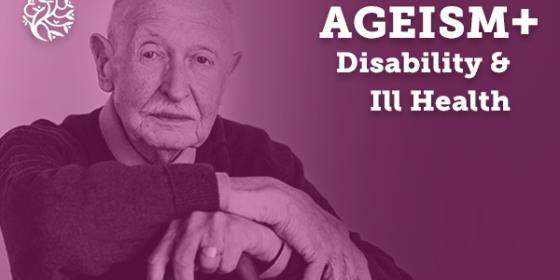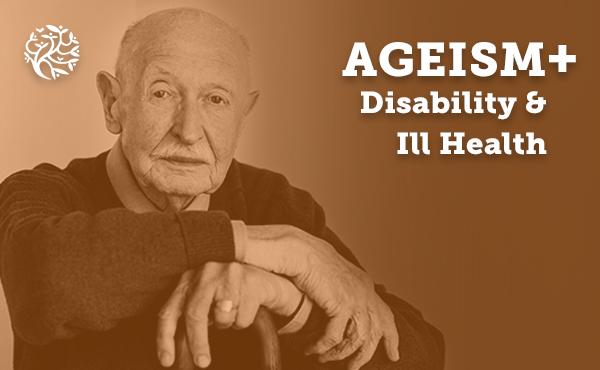 Talked at, and down to, at the same time
Talked at, and down to, at the same time
End of life care is an area of care in which ageism can run together with other forms of discrimination
Good quality end of life care can be a lottery
Although good end of life care is vitally important for all of us, it is a sad fact that too many people face difficulties in accessing it. These can include differences in experiences of care depending on what condition someone has or where they live; people not being recognised as dying and their needs not being responded to; symptoms not being properly controlled; poor communication; inadequate out-of-hours services; poor care planning; and delays in diagnosis and referrals for treatment.
There are also challenges for specific groups, including people in secure and detained settings; homeless people, LGBT people, and black and minority ethnic groups.
Layered on top of all of these is the issue of age. Given the general demographics of people who die, poor end of life care and the discrimination that can be encountered at this time is a particular issue for older people. End of life care is an area of care in which ageism can run together with other forms of discrimination – e.g. the discrimination faced by LGBT individuals.
Recurring issues include a lack of respect for older people and their individual needs, wishes and choices; and poor communication about people’s treatment and care in care homes.
Greater respect and communication are needed
For example, older people are recognised as facing a number of specific challenges in accessing good end of life care. Recurring issues include a lack of respect for older people and their individual needs, wishes and choices; and poor communication about people’s treatment and care in care homes. Problems with respect and communication can have a ‘double-whammy’ effect on older people who may already be experiencing other forms of discrimination.
An older LGBT person may already be facing discrimination as an LGBT individual, and if they are also finding it harder to be listened to because of their age, this introduces yet another barrier to being able to express their wishes and preferences about their end of life care.
Person-centred care is about meeting the needs of each individual, including those needs specifically related to ethnicity, belief, identity or orientation.
Person-centred care: see the person, not the condition
Ultimately, this all comes back to person-centred care. At Sue Ryder we believe in seeing the person, not the condition. Person-centred care is about meeting the needs of each individual, including those needs specifically related to ethnicity, belief, identity or orientation. Person-centred care is uniquely important in end of life care – after all, there’s only one chance to get it right.
Getting end of life care right means tackling all the different forms of discrimination that are faced by individuals who need support. One way we can try to do this is to take a human rights approach to end of life care. The Human Rights Act underpins all health and social care law, and protects our basic rights as human beings – and one of these rights is not to be discriminated against.
What can be done?
Sue Ryder trains healthcare practitioners to understand their legal duties under the Human Rights Act so that they can ensure people's choices and wishes are listened to and respected at the end of life, including people who are older, those who find it harder to communicate, or those who identify with minority groups.
Giving end of life care practitioners a robust legal framework to refer to in situations that are often complex and challenging is one way to really help older people access the high-quality, compassionate care they need and deserve.
To find out more about Sue Ryder's free human rights training, visit www.sueryder.org/humanrightstraining.
Duncan Lugton is the Policy and Public Affairs Manager of England at Sue Ryder
Have you been affected by any of these issues?
If you have been affected by any of the issues described in this blog, or simply need someone to reach out to, you can call Independent Age’s freephone helpline for information and advice on 0800 319 6789.
The views and opinions expressed in this article are those of the author and do not necessarily reflect the policy or position of Independent Age.
